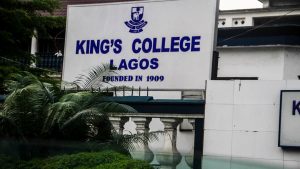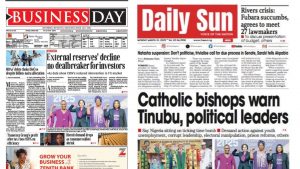R&B singer Akon is building a ‘real-life Wakanda’ in Senegal – Tek Portal
(CNN) — The award-winning R&B singer Akon is going ahead with ambitious plans to build a “futuristic” city in Senegal that he says will be a real-life version of Wakanda, the hi-tech nation portrayed in Marvel blockbuster “Black Panther.”
On Monday, Akon, real name Aliaume Damala Badara Akon Thiam, laid the first stone for Akon city in Mbodiene park, 100 kilometers from Dakar, the country’s capital city, and said work would begin next year.
“We are looking at Akon city to become the beginning of Africa’s future,” he said at the ceremony also attended by Alioune Sarr, Senegal’s minister for tourism, and other government officials. “Our idea is to build a futuristic city that incorporates all the latest technologies, cryptocurrencies, and also the future of how African society should become in the future.”
According to its official website, the solar-powered city will have healthcare facilities, offices, luxury houses, shopping malls, skyscrapers, and eco-friendly tourist centers. It will be a five-minute drive from the country’s new international airport.
The singer was gifted 2,000 acres of land by Senegalese President Macky Sall to build the ambitious city. Akon also said he has raised part of the $6 billion required to do so through unnamed investors.
He first announced his idea for the idealistic city back in 2018 where compared it to the fictional technologically advanced nation of Wakanda portrayed in “Black Panther.”
Cryptocurrency
The plan is for Akon city to trade exclusively in its own digital cash currency (cryptocurrency) called Akoin.
Unlike other cryptocurrencies tied to stable currencies, Akoin is tied to cellphone minutes and relies on the use of smartphones.
According to the singer, more people in Africa trust their cellphone companies more than they trust local currency.
In November 2019, the singer told CNN that cryptocurrency will allow Africans to become less dependent on their governments. He argued that Akoin will enable people to have control of their own currency and by extension make financial decisions without external interference from their countries.
“We want to be able to kill corruption through blockchain itself and I think starting with currency, it is the biggest thing. The main thing they (Africans) will be able to gain is independence and I think being in the position to make your own financial decisions is key,” he said.
Yet Akoin has faced criticism and questions around how it works in low income countries with little access to smartphones or data.
Job creation
Akon told a press conference that work would begin on his city in 2021.
Seyllou/AFP/Getty Images
“I wanted to build a city or a project like this that would give them (African Americans) the motivation to know that there is a home back home… The system back home (in the US) treats them unfairly in so many different ways that you can never imagine and they only go through it because they feel like there is no other way,” he explained.
He added that his hope is for Senegal to be the go-to tourist destination in Africa as a result of Akon city.
“As you are coming from America or Europe, anywhere in the diaspora and you feel that you want to visit Africa, we want Senegal to be your first stop,” he says.
Alioune Sarr, the Senegalese tourism minister, cheered Akon’s decision to invest in the country at this time when the Covid-19 pandemic has affected the nation’s economy.
“At a time, in a context where national and international private investment is rare. Akon, you have chosen to come to Senegal and invest $6 billion in the coming years,” Sarr said.
Africa’s tourism industry was hit hard by the pandemic as airports, hotels, restaurants, event centers and tour companies across the continent shut down as a way to curb the spread of the virus.
This is not Akon’s first major investment on the continent. Over the past years, the entertainer has signed off on major deals in Africa.
In 2014, for example, he started Akon Lighting Africa, a charity project in partnership with the World Bank and governments to provide solar-powered electricity for 600 million Africans.







